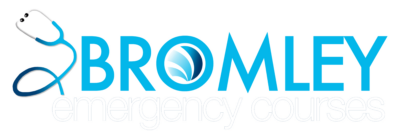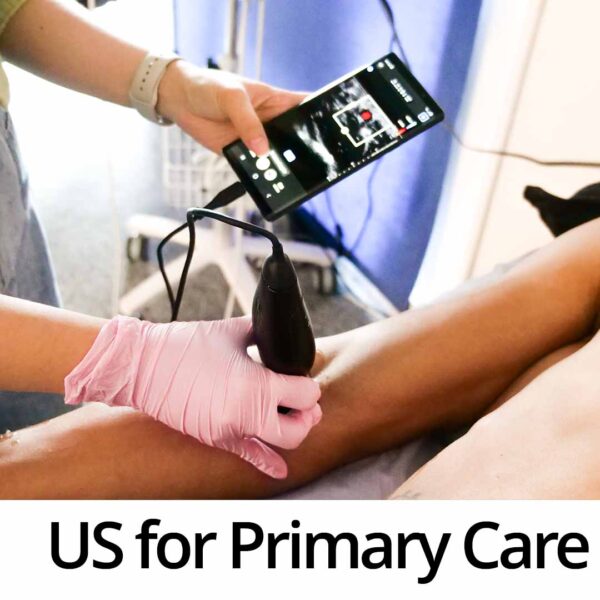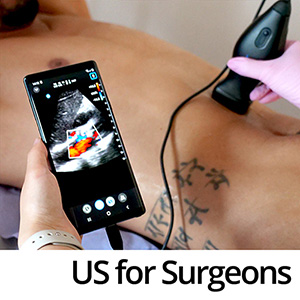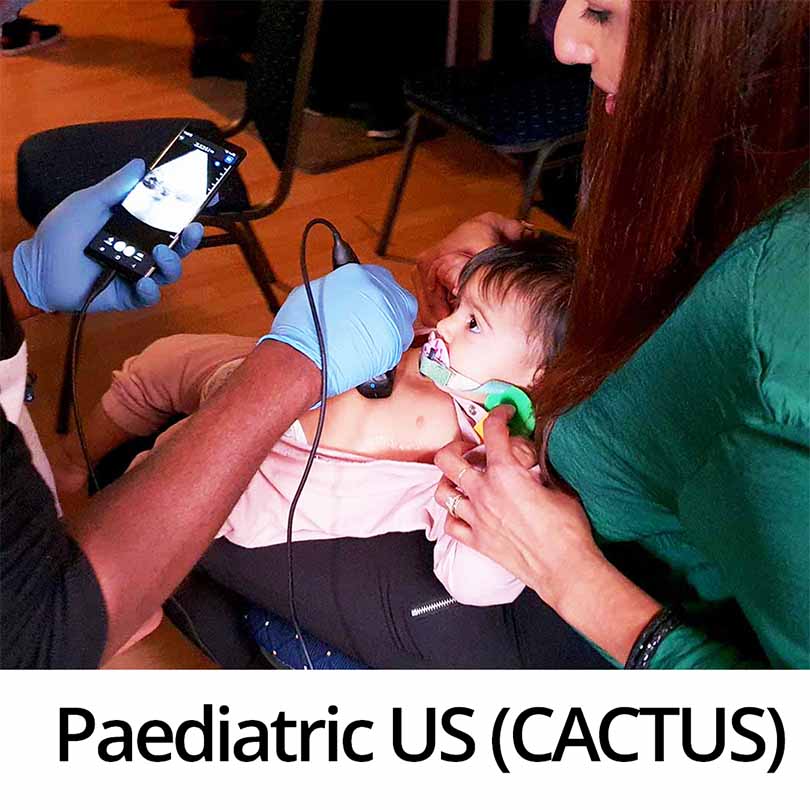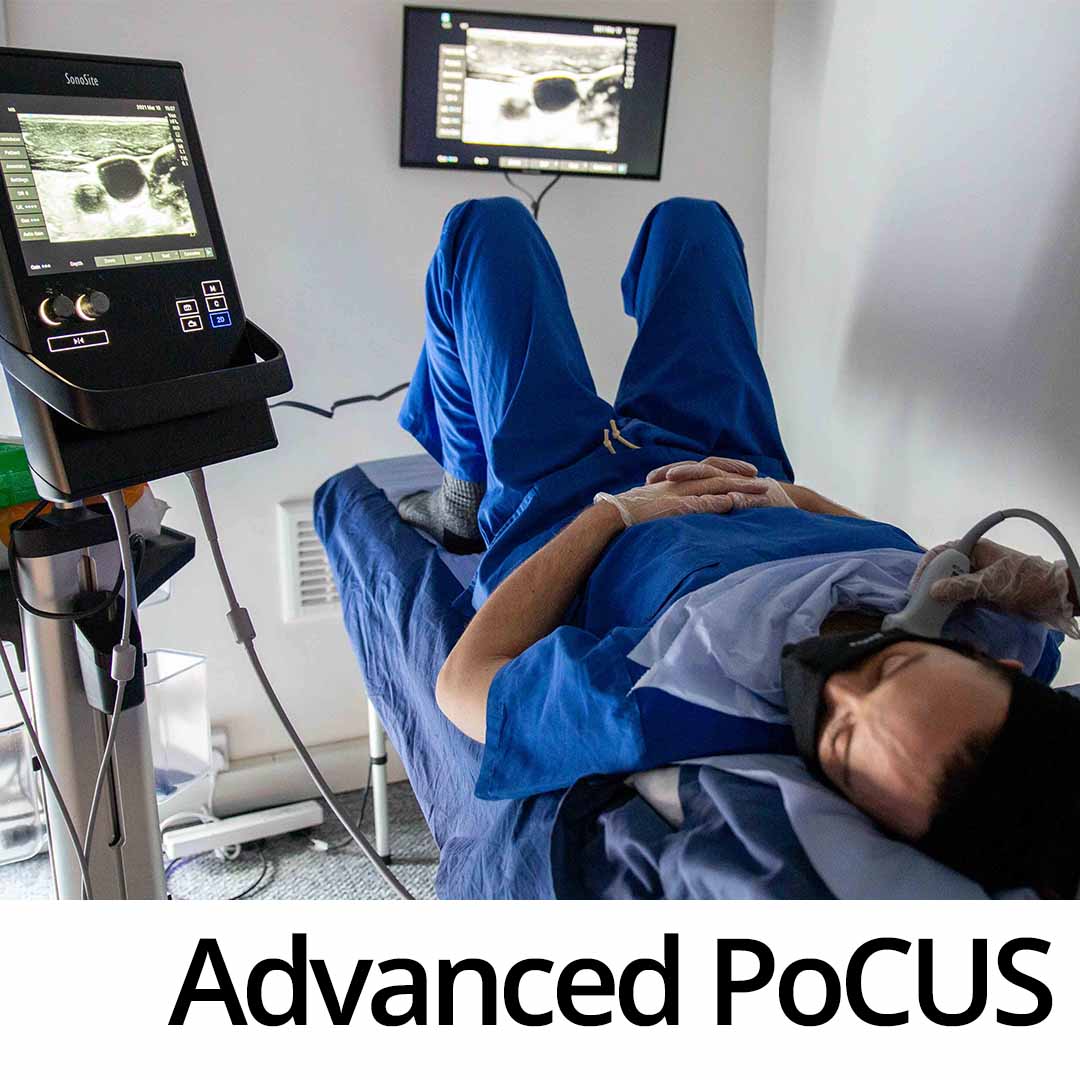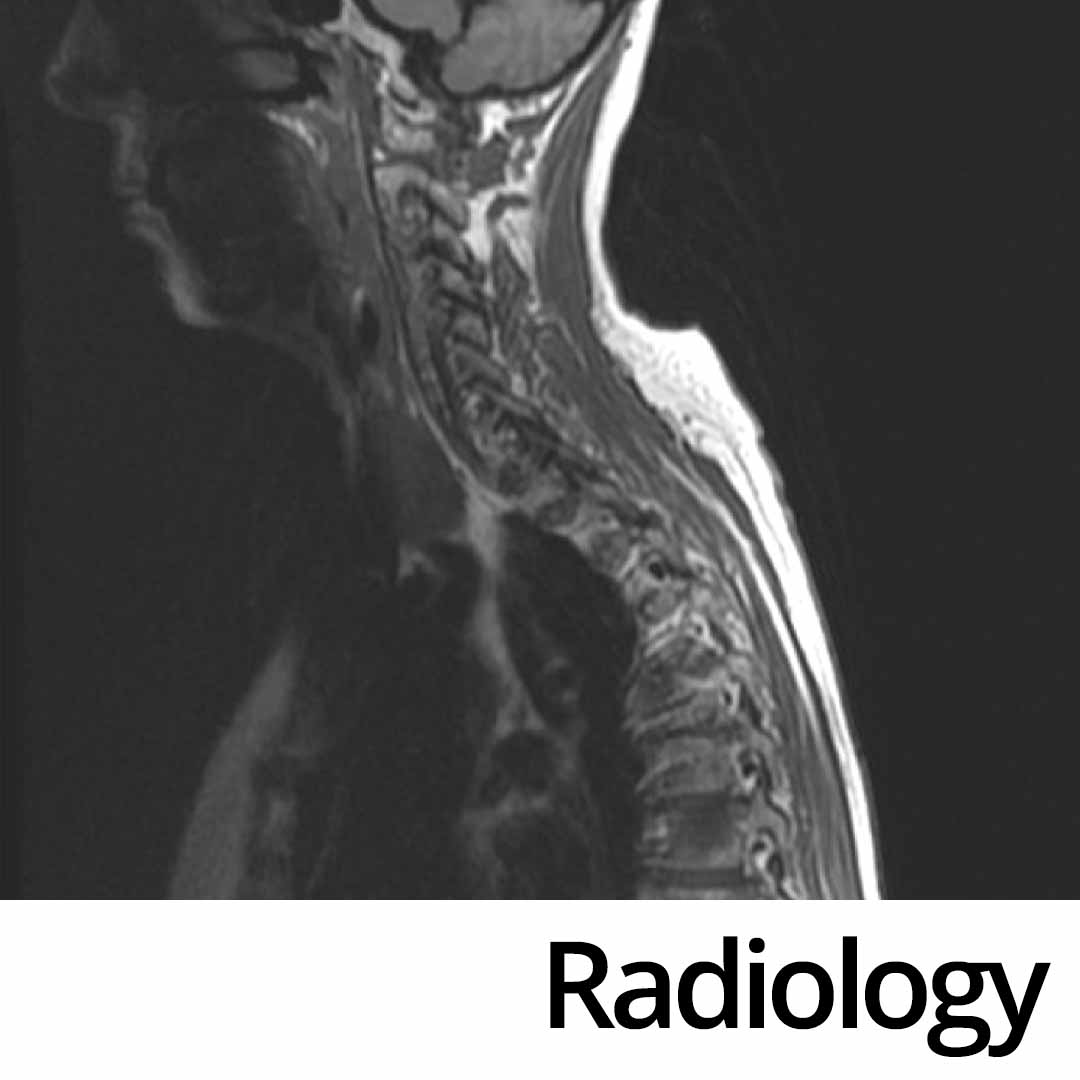Musculoskeletal Ultrasound Course
Our Musculoskeletal (MSK) Ultrasound course is intended to improve your skills in providing a safe and accurate assessment of joint and soft tissue injuries and infections. Ultrasound is often more effective than X-rays when you have to manage patients with strains or sprains of muscles and supporting tissue, tears in the ligaments and tendons, fluid in joints, fractures and dislocations.
This MSK Ultrasound Course is designed to provide emergency doctors with a comprehensive understanding of ultrasound imaging techniques for joint and soft tissue evaluation. Other clinicians, such as physiotherapists, sports medicine physicians, and general practitioners working in minor injuries units, will also find the course useful.
You can apply for 5 CPD points for this course.
Next course dates: tbc
Fee: £370 (increasing to £395 from 1st September 2025)
Course Times: 9.00am – 5.30pm
Venue: Terracotta Court (ground floor), 167 Tower Bridge Road, London, SE1 3LN
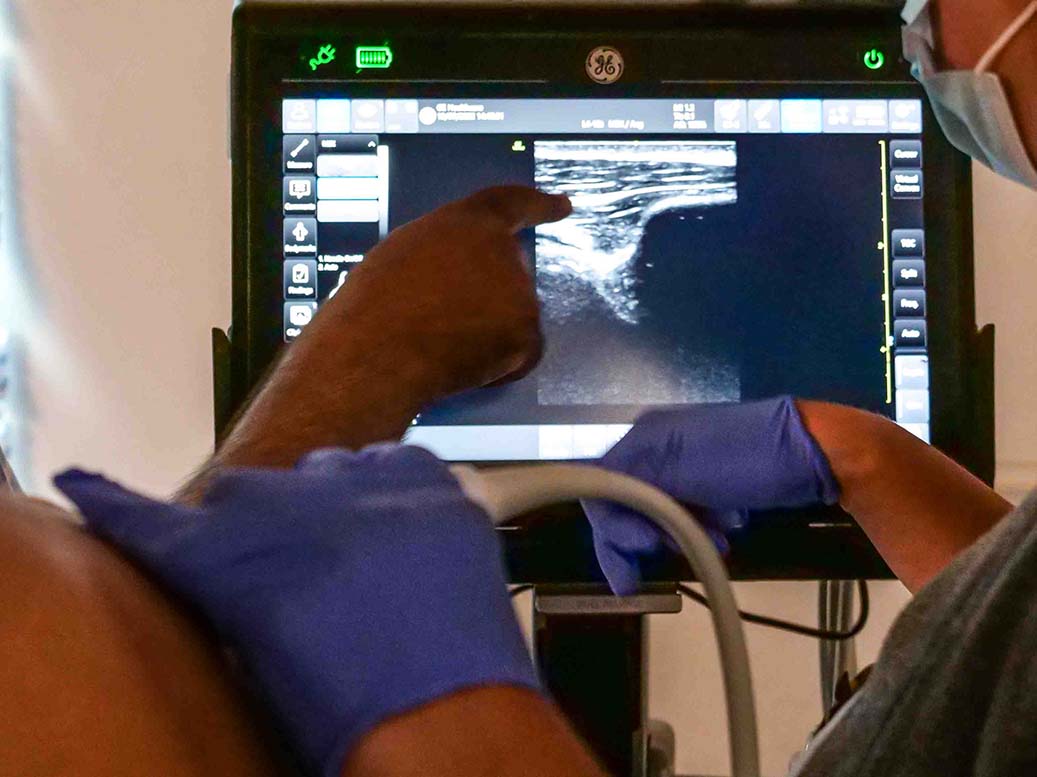
20 years of teaching EM and PoCUS courses
19 000 clinicians have taken our courses
4.9 out of 5 is our average Google review score
About Our Musculoskeletal Ultrasound Course
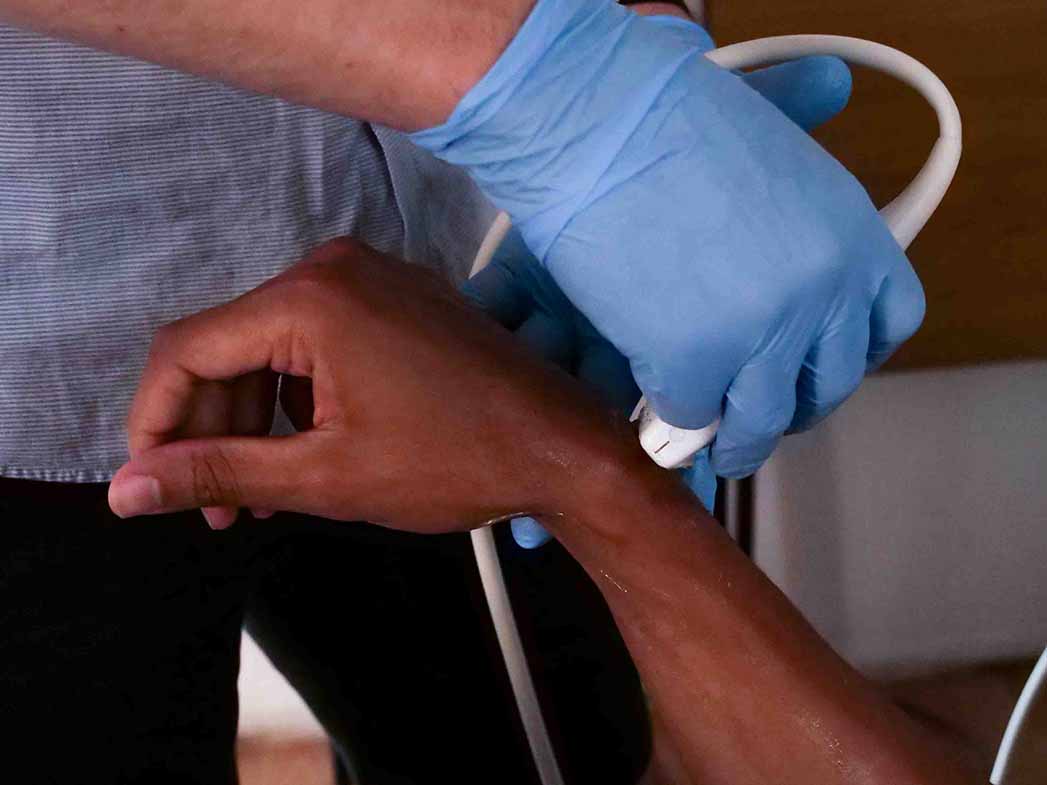
What Does the MSK Ultrasound Course Cover?
The course covers the normal appearances of joint and soft tissues and how these are affected by ultrasound settings and probe angulation (anisotropy). It also covers the value of dynamic imaging and observing structures during movement, as well as the use of ultrasound in the following:
- Fracture diagnosis and assessment of reduction
- Dislocation assessment and assessment of reduction
- Tendon and ligament disruption (Achilles’ Tendon, ankle injury, knee injury)
- Joint fluid assessment and aspiration.
- Soft tissue infection, diagnosis of cellulitis and abscess formation, judging suitability for surgical drainage. Diagnosis of necrotising fasciitis.
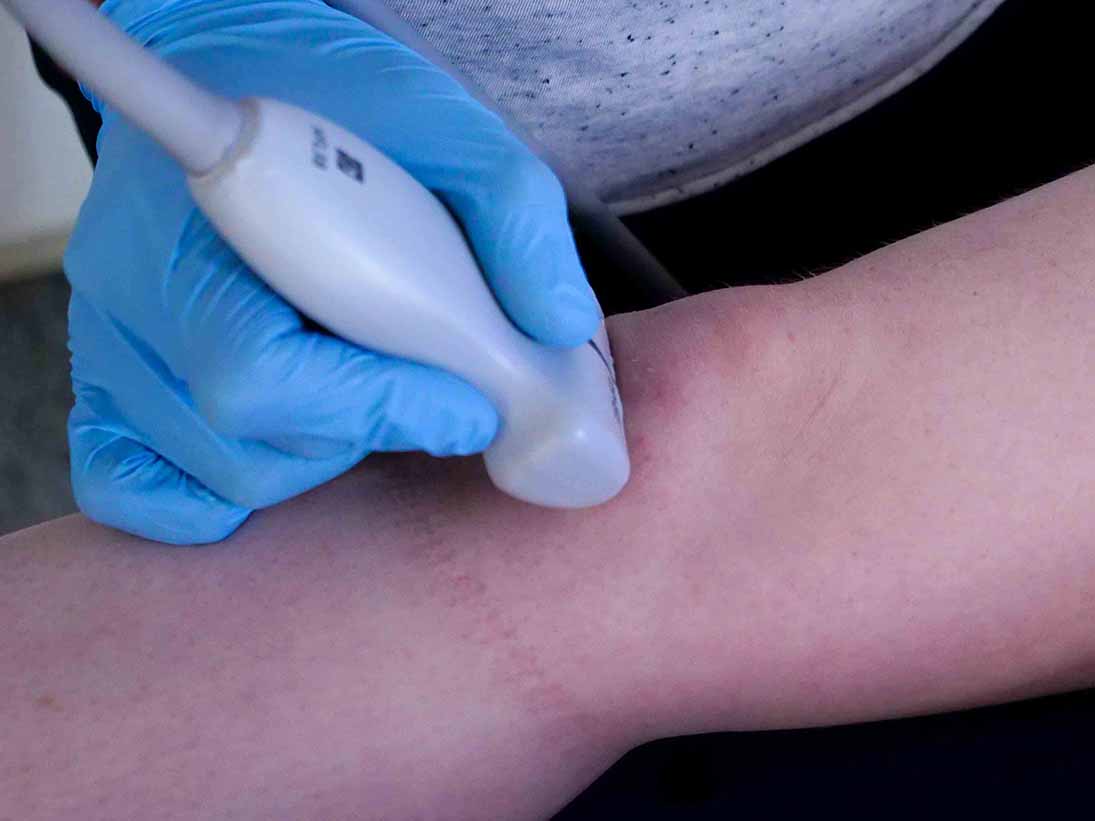
What Skills Will You Develop by the End of the Course?
You will learn how to use ultrasound to diagnose a variety of musculoskeletal conditions, including fractures, dislocations, tendonitis, bursitis, and more. By the end of our Musculoskeletal Ultrasound course you will be able:
- Use high frequency probes for joint and soft tissues assessment.
- Identify fractures in ultrasound, to judge the need for reduction and whether reduction is successfully achieved.
- Assess the shoulder for a shoulder dislocation and rapidly judge if it has been successfully reduced.
- Look with ultrasound for important tendon structures affected by common injury patterns.
- Identify fluid in joints and to use ultrasound to guide aspiration.
- Scan inflamed skin in order to identify the presence of cellulitis or an abscess or Necrotising fasciitis.
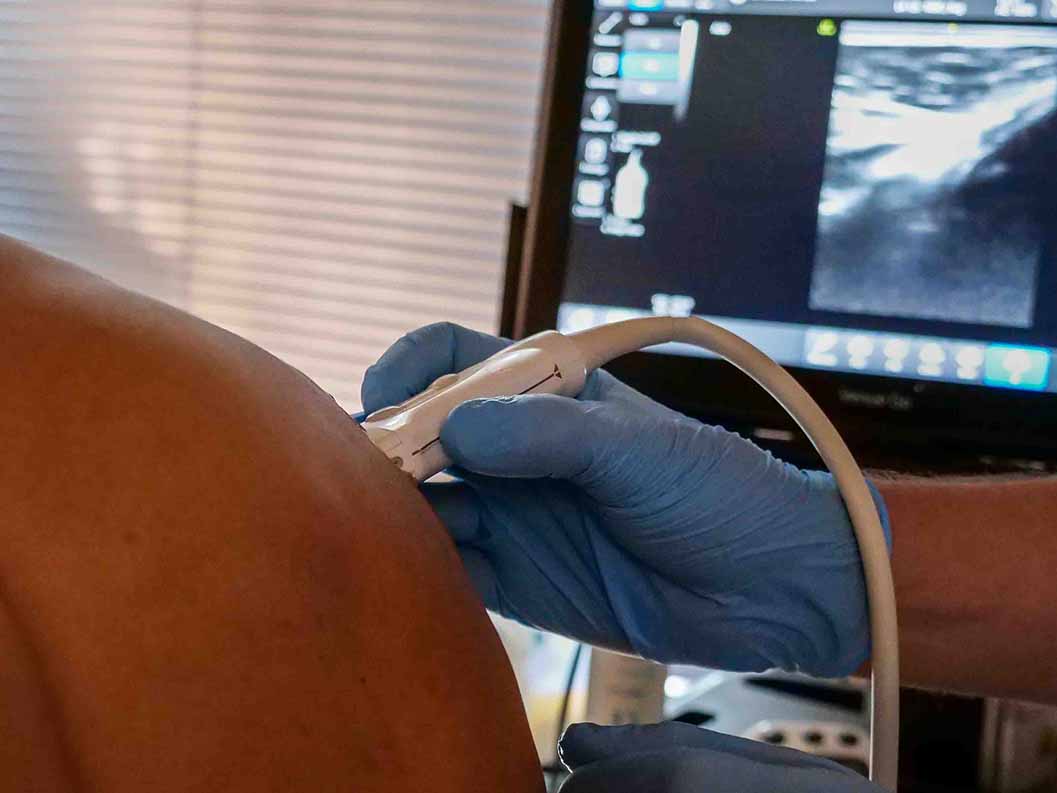
How Is the MSK Ultrasound Course Taught?
Our course is led by clinicians who have extensive experience in the management of musculoskeletal disorders in busy emergency departments and physiotherapy practice. The emphasis of the course is on practical scanning.
The day will consist of an alternating pattern of lectures and practical sessions. The lectures will include live demonstrations to show you how to obtain the necessary views, before you break out into practical sessions where you will practice scanning on live models and simulators with pathologies. In the practical sessions you will use a wide range of ultrasound equipment including portable and handheld devices.
The course will help you develop confidence in your abilities and improve your skills in joint and soft tissue ultrasound imaging.
Subscribe to Bromley Emergency Courses’ weekly email newsletter to keep up with the latest emergency medicine training news and courses
*By proceeding you give your consent to be contacted via email with updates on courses and events by Bromley Emergency Courses. You may unsubscribe from these communications at any time. We will never share your details with 3rd parties and will only use your email to send you information about our upcoming courses and other offers.

